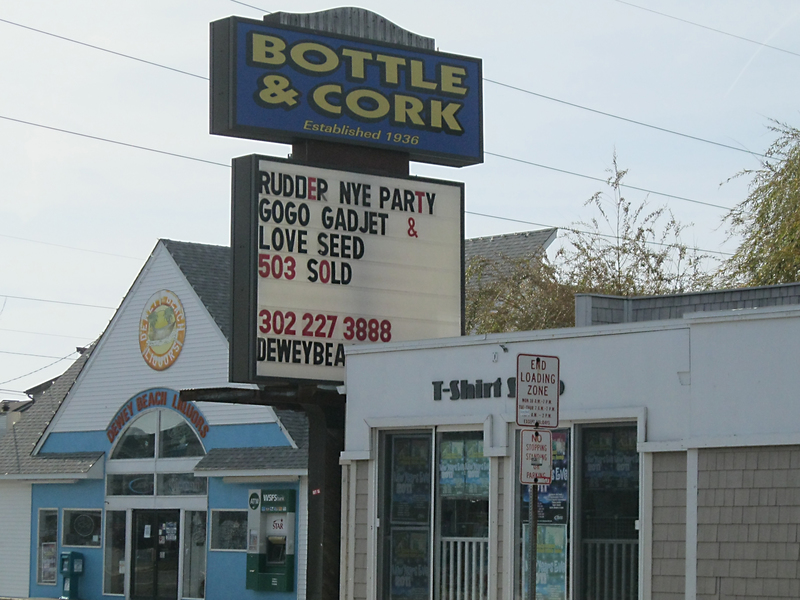Businesses in Dewey Beach could be forced to pay more to support town operations starting in 2014. Budget officials say a gross receipts tax on businesses is the best way to balance the town’s budget and ensure all entities are paying their fair share.
Dewey Beach Budget and Finance Committee will hold a public information meeting, Saturday, Feb. 16, to discuss a referendum to create a gross receipts tax on larger businesses in town.
A handful of town officials and two business owners who would be subject to the tax – Highway One Partner John Snow and Starboard owner Steve Montgomery – attended a Jan. 12 budget committee meeting to discuss the upcoming public presentation.
The proposal would put a maximum 3 percent tax on all businesses located in town that bring in more than $100,000 per year. Officials estimate the tax would bring in more than $300,000 annually.
Homeowners who rent their property in Dewey Beach are charged a 3 percent accommodations tax on their gross proceeds each year.
“What we need is more stability, more predictability in our revenue,” said committee member Dave Davis. If the tax is approved, he said, it would not be implemented until fiscal year 2015.
The committee argues the town did not bring in enough revenue to meet the budget this year. Shortfalls include parking permits – which brought in $70,000 less than budgeted – business licenses, parking meters, delinquent parking fines and town ordinance fines.
Transfer taxes, which have annually created more than $300,000 in revenue since 2009, are undependable, said Town Commissioner and Budget Chairman Courtney Riordan.
Before he was elected in September, Riordan announced his opposition to a property tax, as proposed by the former budget and finance committee. Riordan said businesses, not property owners, should be paying more to support town operations.
Committee member Dave Jasinski said the town’s revenue sources are maxed out, and efforts to reign in expenditures, such as legal fees, which are currently $40,000 over budget for the year, have repeatedly failed.
The committee also says a property tax and an occupancy tax – two alternatives to the gross receipts tax – are not plausible.
If a property tax were imposed, residents who do not benefit financially from more than 1 million tourists who visit the town each year would be paying the most, Riordan said. The town spends about $300,000 per year on seasonal police and nearly $1 million on its year-round police force. Lifeguard services cost another $300,000.
Committee member Joan Claybrook said residents simply do not want a property tax. “It’s not going to happen,” she said.
If an occupancy tax, which would charge a fee for each person in a business, were imposed, the town would likely have to get rid of its accommodations tax, Davis said.
Committee member Mike Dunmyer said a gross receipts tax is more precise than an occupancy tax, which, for rentals, would be based on the number of bedrooms in the home.
In a written report, Riordan stated, “The existing accommodations tax does exactly that, so why substitute an unreliable and therefore unfair tax for one that is already in place and is accurate and fair?”
In a Nov. 30 letter, Highway One attorney Stephen Spence threatened legal action against the town for charging more for establishments licensed to serve beer, wine and liquor, which constitutes an illegal tax on alcohol.
Riordan said the gross receipts tax for businesses should match the accommodations tax to appear reasonable in court in case Highway One takes action. “We’re likely to get very high-powered challenges,” Riordan said.




















































